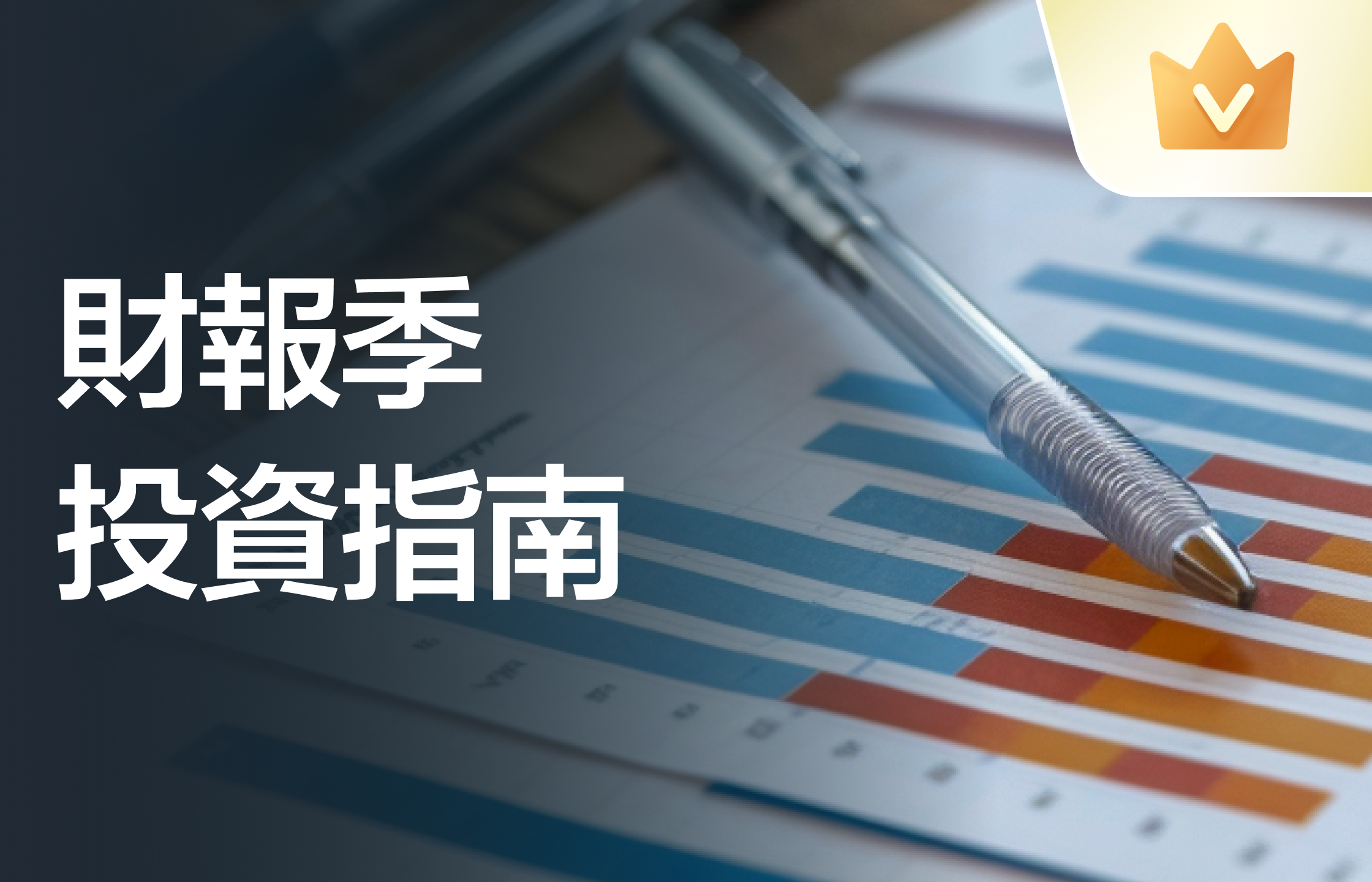中國AI狂潮引爆對沖基金盛宴,Triata單月39%收益領跑全球。
智通財經APP獲悉,隨着中國人工智能初創公司DeepSeek全面崛起,並且引領以「極低成本」和「高能效」爲核心的全新「AI大模型算力範式」,DeepSeek開始與醫療、金融和教育等各行業,以及與消費電子等應用終端深度融合帶來的AI創新產品/服務,有望帶動中國半導體、Saas軟體、雲計算乃至所有行業銷售額和營業利潤步入新的增長範式,最終推動全球投資者們對於中國股市,尤其是科技股的看漲熱情。縱觀全球對沖基金今年迄今投資收益,2025年以來跑贏同行平均水平或基準股指的秘訣或法寶似乎有且只有一個準則:配置中國科技股。
統計數據顯示,在上個月,受DeepSeek和Unitree Robotics(宇樹人形機器人)共同推動的中國AI投資狂潮,科技股強勢帶動之下中國股市(包括港股與A股)持續上漲,尤其是涵蓋$阿里巴巴 (BABA.US)$、 $騰訊控股 (00700.HK)$ 以及 $小米集團-W (01810.HK)$ 在內的$恒生科技指數 (800700.HK)$2月以來大漲近30%,大幅提升了幾隻配置中國科技股的對沖基金和純多頭基金(即所謂的long-only)的回報率。
 DeepSeek推出了一款極低成本且性能不輸於OpenAI旗艦推理模型的開源AI大模型,而宇樹科技則展示了其領先全球的人形機器人技術,這些都點燃了全球對沖基金對於中國股票市場的投資熱情。MSCI中國指數2月份飆升近12%,本月延續漲勢,領漲的股票預計將繼續受益於這些技術的廣泛應用。
DeepSeek推出了一款極低成本且性能不輸於OpenAI旗艦推理模型的開源AI大模型,而宇樹科技則展示了其領先全球的人形機器人技術,這些都點燃了全球對沖基金對於中國股票市場的投資熱情。MSCI中國指數2月份飆升近12%,本月延續漲勢,領漲的股票預計將繼續受益於這些技術的廣泛應用。
MSCI中國指數已經步入「技術性牛市」,該基準指數涵蓋阿里巴巴、騰訊、貴州茅臺以及長江電力等中國核心資產,當前徘徊於77點附近,滬深300指數則徘徊在3940點附近。根據高盛的上漲預期,這兩大指數還有上行空間,高盛研究團隊將MSCI中國指數以及滬深300指數目標點位分別上調至85點及4700點。
今年中國科技七巨頭的市值猛增高達4390億美元,讓曾經不可戰勝的美國科技同行們望塵莫及,一些投資機構表示,中國科技股的優異表現還有進一步擴大的空間。
阿里巴巴和騰訊等七家中國科技巨頭的「等權重股票籃子」指標(被法國興業銀行稱爲中國科技「七巨頭」)今年以來上漲了 40% 以上。相比之下,衡量美股七巨頭的股票指數下跌了約10% ,該指數的暴跌也使涵蓋衆多熱門科技股的$納斯達克100指數 (.NDX.US)$大幅回調,今年以來該指數跌超5%,七巨頭暴跌也使得一些重倉它們的對沖基金投資回報遠遜於那些押注中國科技股的同行們。
這是去年年底華爾街很少有投資機構預料到的急劇逆轉。今年早些時候,納斯達克創下歷史新高,而中國科技股仍受到多年來監管壓力和科技層面吸引力遜於美國同行的影響。然而,幾乎在一夜之間,DeepSeek和宇樹科技顛覆了人們的看法,即中國需要數年時間才能趕上美國的人工智能與機器人霸主地位。
多隻選擇買入中國科技股的對沖基金收益大漲
在中國科技股配置標的的強勢推動之下,包括 Triata、Viridian、Aspoon、Red Gate 和 Keywise 在內的多家對沖基金在2月份獲得了遠強於同行的投資回報,其中一些公司創下了自成立以來的最佳月度表現,這得益於它們對中國人工智能相關的軟體公司、數據中心運營商以及人形機器人相關公司的配置規模。
香港Keywise Capital Management Ltd.創始人表示:“中國股市今年可能會被市場重新評估。DeepSeek和 Unitree 促使人們重新評估中國的科技發展前景。”
Triata Capital
媒體援引知情人士透露的消息報道稱,這家中國對沖基金2月回報率達39%,主要受益於對中國AI軟體與數據中心股的看漲押注。首席投資官Sean Ho職業生涯始於全球量化交易巨頭Susquehanna,並在創辦自己的公司之前在香港Tybourne Capital Management 搭建另類數據系統。
知情人士稱,Triata利用企業招聘活動等另類數據,在2024年一季度以5-6美元區間買入中國數據中心運營商 $萬國數據 (GDS.US)$ 。去年出售少數股權時,萬國國際業務估值約3.86美元每ADR,顯示市場大幅低估中國AI軟體與基建需求潛力。萬國數據股價2月一度飆破40美元。此外,管理超10億美元資產的Triata還持有雲計算與文生視頻領域科技公司。
Viridian
來自Viridian Asset Management的首席投資官Pascal Guttieres透露,該基金2月錄得約6%收益(創去年8月成功運作以來最佳),通過參與香港上市的$速騰聚創 (02498.HK)$、 $晶泰控股-P (02228.HK)$ 與$黑芝麻智能 (02533.HK)$等中國科技公司增發獲利。
這些發行的定價通常大幅低於當時的市場價值,爲Viridian等股票型資本市場基金在股價上漲時提供了獲利良機。管理1.3億美元的Viridian本月將啓動爲美國投資者管理2億美元的新協議,週年時規模有望達4億美元。
Aspoon Capital
知情人士表示,這家去年已佈局中國AI相關科技股的基金2月收益上漲4.8%,2024全年回報58%。在12月與1月投資者信中,該機構宣告「中國ChatGPT時刻」到來,認爲此輪行情比去年10月更可持續。
由來自Tiger Pacific Capital的Ryan Yin所執掌的Aspoon指出,雖然DeepSeek無法將其獲得的所有流量和關注度進行貨幣化,但這兩家巨頭——阿里巴巴與字節跳動,擁有非常充足的資源來實現這一目標,從而徹底開啓一個新的人工智能支出和基礎設施週期,就像兩年前的美國股市的亞馬遜與微軟所享受到的股價與估值大漲浪潮那樣。
阿里巴巴股價在港股市場今年暴漲超70%,相比於美國2023年已開始大舉建設AI基礎設施,中國相關基礎設施建設進程較晚,且隨着DeepSeek融入各行各業以及龐大C端客戶所帶來的龐大AI推理算力需求,當前在美股市場流行的「算力資源過剩」理論,可能相當長一段時間都不會出現在中國股票市場,這也是國際資金近期大幅流向港股與A股的核心邏輯。
在港股,憧憬「長牛行情」的樂觀情緒可謂比A股更加沸騰,受益於聯儲局減息,以及國內貨幣刺激政策提供的流動性支持,港股自去年9月以來可謂吃到「中美雙重流動性紅利」。近期DeepSeek引爆中國AI投資狂潮之後,港股作爲外資投資中國市場的門戶,可謂是對沖基金等外部資管機構投資中國公司的最佳切入口,引發外資蜂擁至港股。
Red Gate
據機構統計數據數據,Red Gate China Growth Fund(long-only類型)2月投資收益上漲8%,主要驅動力來自中國高端製造與IT股。該機構研究團隊在郵件中表示,機器人需求將超越電動車與手機總和,市場規模達萬億美元級。中國與全球機器人制造商今年將啓動量產,建議聚焦零部件供應商,具備低成本量產能力者勝出。不過該團隊提醒人形機器人概念股熱度可能降溫,因估值已透支實際應用和訂單,早期的重點應該放在確定未來的贏家以及他們背後的企業家和技術上,而不是估值。
在人工智能領域,騰訊旗下的微信應用程序正在進行測試,將DeepSeek的AI大模型集成到其搜索引擎中。Red Gate的分析表明,它能夠擴展到電子商務和生活方式各種服務功能。
該團隊還寫道,阿里巴巴最近宣佈計劃在未來三年內在人工智能上投入比過去十年更多的資金,此舉「展示了管理層思維方式的轉變」。它「表明一批私營企業從經濟寒冬過渡到積極從事商業活動」。
Keywise
Keywise Penguin Development Fund 2月預估收益上漲5.9%,主要收益來自港股市場的科技股。Keywise監管着大約25億美元資金,增持了中國領先的雲服務提供商阿里巴巴以及騰訊;該機構還買入攜程,認爲該公司可以使用人工智能來加強旅行計劃和客戶服務。
該機構認爲小米與比亞迪亦具備AI驅動的轉型潛力。大約十年前Keywise轉型佈局新能源、電動車、AI與機器人等科技大趨勢,現管理大約25億美元資產。Keywise的大部分投資都在美國和中國股市。
中國科技股狂歡未完待續?
對於港股與A股來說,DeepSeek重磅推出的具備劃時代意義的「超低成本AI大模型」,已經成爲全球投資者重新評估中國資產的前所未見「牛市催化劑」,而這些投資者本來已經對美國科技股愈發高企的估值感到擔憂。DeepSeek的橫空出世,可謂徹底引爆全球資金——包括槓桿型對沖基金以及傳統資管巨頭們,圍繞中國人工智能領域的史無前例投資狂潮。
來自Saxo Markets 的首席投資策略師Charu Chanana表示:“DeepSeek 的成功,以及隨後中國科技公司推出的一系列人工智能模型,提醒世界,儘管美國對芯片出口實施限制,但中國的創新實力不容小覷。” 「考慮到估值折價,中國科技股的勢頭還有大幅上升空間。」
法國興業銀行根據市值和增長軌跡將一批中國企業列入名單,其中主要所謂的中國「七大科技巨頭」: $騰訊控股 (00700.HK)$ 、 $阿里巴巴-W (09988.HK)$ 、 $小米集團-W (01810.HK)$ 、 $比亞迪股份 (01211.HK)$ 、$中芯國際 (00981.HK)$、 $京東 (JD.US)$ 以及$網易 (NTES.US)$。根據該機構的Frank Benzimra 等市場策略師在 2 月 28 日發佈的報告,該一籃子股票目前的整體預期市盈率僅僅爲 18x,較美股「七巨頭」折價逾40%。
恒生科技指數週五一度上漲逾2%,本週漲幅達到約 10%。該指數目前創下 2021 年底以來的最高水平。即使今年大幅上漲,恒生科技指數仍比2021年峰值低約40%。該指數五年來的回報率僅爲18%,僅爲納斯達克100指數同期漲幅超過130%的一小部分。
隨着重返白宮的唐納德·特朗普以一系列關稅動搖全球貿易秩序、令美國企業和消費者感到不安,作爲「美國例外論敘事」的一部分,美國股市上漲勢不可擋的觀念正在被動搖。以英偉達、微軟以及谷歌爲首的美國大型科技巨頭股價多年來的強勁漲勢遭遇重大阻礙,因爲投資者們質疑這些公司高估值的有效性以及高額AI支出的合理性,並要求它們提供更多盈利驚喜以及關於人工智能的更加清晰的貨幣化路徑。
尤其是兼具「低成本」與「高效能」標籤的DeepSeek-R1橫空出世以來,涵蓋英偉達、微軟以及谷歌等科技公司的「七巨頭」領漲美股的邏輯發生了根本性質的變化,投資者們開始強烈質疑美國科技巨頭們對於人工智能堪稱狂熱的AI燒錢計劃是否合理。除了Meta,其他巨頭的股價表現都大幅跑輸標普500指數,成爲拖累整個美股上漲的最核心負面催化劑。
若以中國七巨頭——騰訊、阿里、小米、比亞迪、中芯國際、京東以及網易來對標美股「七巨頭」,業績增長強勁的中國七巨頭在估值層面可謂便宜得多。法興銀行發佈的一份研報顯示,在互聯網行業監管收緊後,中國 「七大巨頭」 的估值幾乎下降了 50%,此後遠期市盈率一直窄幅波動,在 14x- 20x之間。儘管近期股價有所反彈,但該組合仍未達到過去三年區間的上限,仍較過去五年平均水平低約 10%。
中國科技「七巨頭」 的估值溢價已從2021年前的115%降至目前的約55%。仍比過去五年平均溢價低約20個百分點。與美國「七巨頭」相比,則存在更大程度的估值折價,目前折價大約45%。

來自Union Bancaire Privee的董事總經理Vey-Sern Ling表示:“中國科技股表現優異的必要驅動因素已經具備,包括政府高層支持、盈利復甦預期以及人工智能驅動的結構性增長主題。美國科技股估值已連續兩年大幅擴張,而現在盈利數據令人失望以及「滯脹」預期帶來的宏觀因素正在推動拋售,這在一定程度上推動了從美國到歐洲和中國的輪換。”
對沖基金的另一面:聚焦美股「七巨頭」的策略收益不容樂觀
由於美股市場大幅波動逆轉了關鍵交易的勢頭並重創美股科技股,尤其是所謂的「七巨頭」——即蘋果、微軟、谷歌、特斯拉、英偉達、亞馬遜以及Meta Platforms,千禧管理 (Millennium Management)、Citadel和其他頂級對沖基金 2 月份的回報表現平淡,跑輸標普500指數以及同行平均水平。

「七巨頭」乃2023年以來標普500指數以及納斯達克100屢創新高的核心推動力,但是今年以來除了Meta,都成爲大幅拖累對沖基金收益的標的。
摩根大通分析師在給客戶的報告中指出,1 月底持續至2月份的波動「引發了投資者對於對沖基金業績的諸多質疑」。分析師還補充道,科技、媒體與電信,以及一些消費品股的倉位過於擁擠導致「部分基金業績慘淡」。
標普500 指數在2月當月下跌1.4%,截至2月份的全年漲幅僅爲 1.2%,按美元計算,今年前兩個月落後於歐元區斯托克指數以及MSCI中國指數10個百分點以上。
此次美股科技股暴跌造成的市場動盪也對主要宏觀對沖基金造成了影響。Said Haidar的 Haidar Jupiter Fund 投資收益2月份大幅下跌 6.3%。Brevan Howard 的 BH Master基金2月份下跌 1.6%,自1月 1日以來下跌 4.5%。其 BH ALPHA Strategies 表現相對不錯,2 月份上漲0.7%,今年迄今上漲2.25%,但是遠遠不及買入中國科技股的對沖基金們整體收益。
編輯/new


 DeepSeek推出了一款极低成本且性能不输于OpenAI旗舰推理模型的开源AI大模型,而宇树科技则展示了其领先全球的人形机器人技术,这些都点燃了全球对冲基金对于中国股票市场的投资热情。MSCI中国指数2月份飙升近12%,本月延续涨势,领涨的股票预计将继续受益于这些技术的广泛应用。
DeepSeek推出了一款极低成本且性能不输于OpenAI旗舰推理模型的开源AI大模型,而宇树科技则展示了其领先全球的人形机器人技术,这些都点燃了全球对冲基金对于中国股票市场的投资热情。MSCI中国指数2月份飙升近12%,本月延续涨势,领涨的股票预计将继续受益于这些技术的广泛应用。








評論(0)
請選擇舉報原因